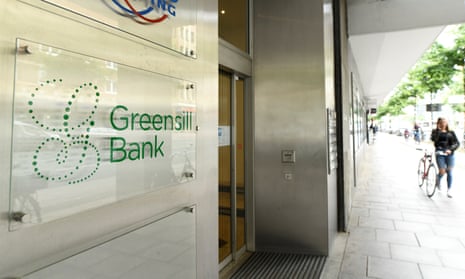Fears are growing about the future of 5,000 British jobs after the main financial backer of Sanjeev Gupta’s steel empire collapsed into administration.
Greensill Capital, a bank that is Gupta’s key lender, said on Monday that it was in “severe financial distress” and formally appointed administrators.
Greensill said Gupta’s GFG Alliance business empire was “currently experiencing financial difficulties” and had “started to default” on payments. Gupta’s companies, which include Liberty Steel, owe Greensill about £3.6bn, according to the Financial Times.
A spokesperson for the Community union, which represents Liberty’s steelworkers, told the Guardian: “Sanjeev Gupta needs to tell us exactly what the administration means for Liberty’s UK businesses and how he plans to protect jobs. The future of Liberty’s strategic steel assets must be secured and we are ready to work with all stakeholders to find a solution.”
Union officials are due to hold crisis talks on Tuesday with Gupta, an Indian-born British billionaire who was nicknamed the “saviour of steel” when he began buying British steelworks in 2017. These included several UK steel and aluminium plants that many experts said could not compete with cheap imports from China.
The business secretary, Kwasi Kwarteng, held emergency meetings over the weekend with Jon Ferriman, the boss of Liberty Steel UK. They reportedly discussed contingency plans if Greensill, which includes former prime minister David Cameron among its advisors, went bust.
Liberty says it is the third largest steelmaker in the Britain, with nine sites employing about 3,000 people. In total about 5,000 people work for GFG Alliance in the UK.
According to court documents seen by the Financial Times, GFG said last month that it would collapse into insolvency if Greensill stopped providing it with working capital.
Liberty is a significant employer in and around Rotherham, South Yorkshire. The local Labour MP, Sarah Champion, said reading reports that Greensill collapse could bring down Gupta’s empire was “terrifying”.
“Losing Liberty would decimate our economy, because it’s not just the steel jobs but the many more in the shops and cafes that depend on them,” she told the Telegraph.
Champion, who serves as the shadow minister for business and consumers, added: “This is a deeply concerning situation and a very worrying time for Liberty Steel workers. It’s vital that the government acts with the urgency required and doesn’t wash their hands of the situation.”
A government spokesperson said: “The government has put together a far-reaching package of support to help businesses and workers through the coronavirus pandemic. We continue to regularly engage with businesses across all sectors, including those in the steel industry.”
A GFG spokesperson said: “Our operations are running as normal and our core businesses continue to benefit from strong market conditions generating robust sales and cashflows.”
A spokesperson for Greensill’s administrators, Grant Thornton, said: “The joint administrators are in continued discussion with an interested party in relation to the purchase of certain Greensill Capital assets.”
The private-equity firm Apollo Global Management is expected to cherrypick the best of Greensill assets out of administration. However, this could generate as little as $60m (£43m). Just last year Greensill, which is run by the Australian businessman Lex Greensill, had sought to value itself at $7bn.
Greensill, which allows businesses to borrow money to pay their suppliers, was thrown into crisis after its own financial backers, including Switzerland’s GAM Holding and Credit Suisse, withdrew support amid concerns about the firm’s management and the growing pile of loans issued to GFG Alliance.
The crisis at Greensill has also triggered alerts at the Bank of England and the European Central Bank. The BoE’s Prudential Regulation Authority (PRA), which is in charge of monitoring financial stability in the UK, has asked banks to reveal how much of their business is linked to Greensill or GFG Alliance.
While Greensill’s parent company is registered in Bundaberg, the Australian home town of its founder, Lex Greensill, the majority of its business is based in London, where it employs about 600 of its 1,000 global staff.
Greensill, the BoE and the ECB declined to comment.
The Bank of England has forced GFG Alliance to inject about £75m into Wyelands Bank, a lender in which Gupta is a shareholder. It is understood that the regulator’s decision followed longstanding concerns about the bank’s business model.
Wyelands will use the money to return cash to its almost 15,000 savers in Britain, who made £726m in deposits, according to its 2019 annual report. The bank said last week it was “solvent and has sufficient financial resources to meet all of its obligations and repay all depositors”.
